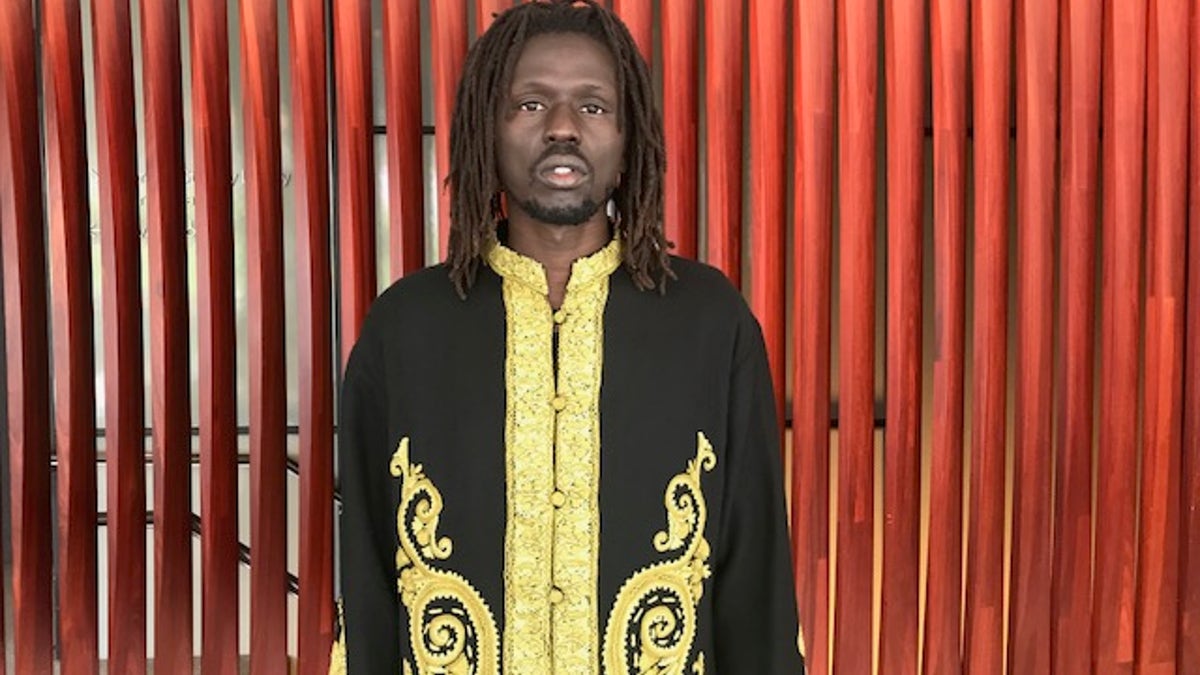
Recovered Sudanese child soldier turned activist and hip-hop artist, Emmanuel Jal (Fox News/Hollie McKay)
While his South Sudan homeland continues to be ripped apart by a protracted civil war, a former child fighter turned prominent hip-hop artist says he's not giving up his campaign to end the recruitment of children on the battlefield.
After all, said Emmanuel Jal, a Christian who learned to kill at the tender age of eight, he knows from what he speaks.
“From the time I was young, I was walking around seeing dead bodies of people from my village. People I knew got shot and died next to me," he said in an interview with Fox News on Monday, where he appeared at an Oslo Freedom Forum event in New York.
"Then, I was recruited as a child soldier and that took me to the next level. As a kid, I had a desire to kill as many Muslims and Arabs as possible.”
Born sometime in 1980 in the South Sudan village of Tonj, Jal was just a toddler when the Second Sudanese Civil War ignited a few years later. At the age of seven, he woke up one morning to learn his mother had been murdered. He was then taken in and indoctrinated by Christian commanders in the Sudan People’s Liberation Army (SPLA), which was fighting the increasingly repressive Islamic government.
“I was taken and trained – I was taught how to fire a gun, how to attack, how to fight, how to take of myself,” he recalled. “The training was difficult, but it would have been much harder if I hadn’t seen all that I had seen. The flashbacks, the suffering of the people, that bitterness is what allowed me to get through and finish the training.”
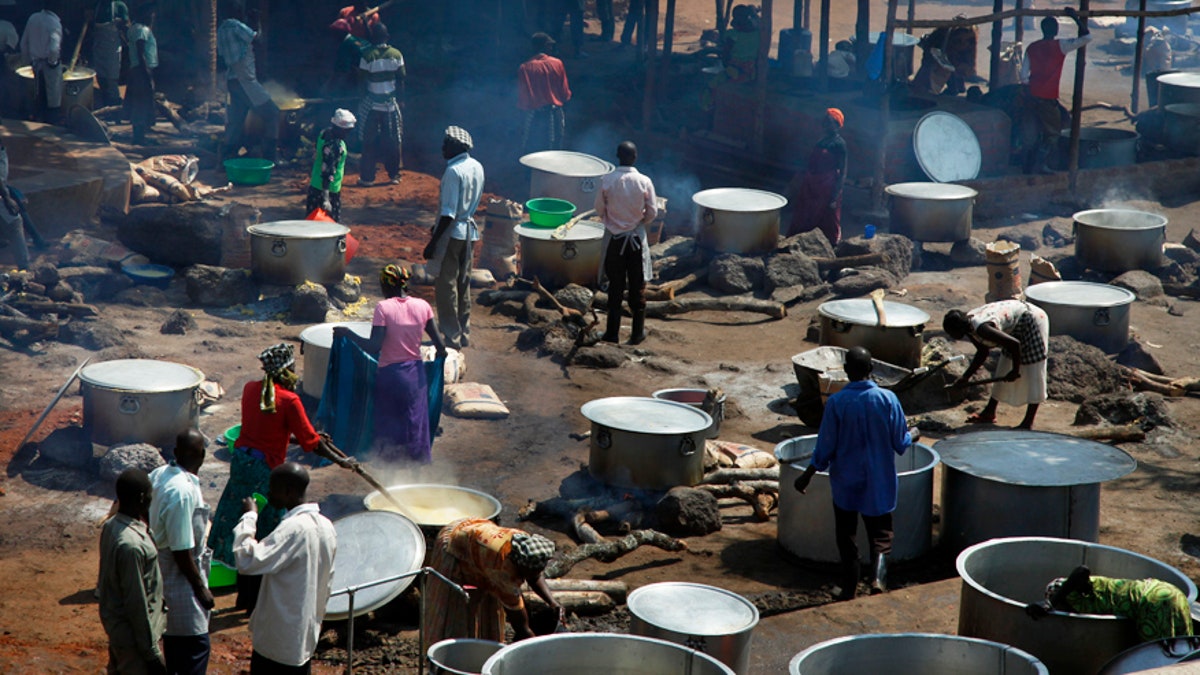
FILE - In this Monday, Aug. 29, 2016 file photo, refugees prepare food in a transit center for South Sudanese refugees in the remote northwestern district of Adjumani, near the border with South Sudan, in Uganda. More than one million refugees have fled South Sudan's ongoing civil war, overwhelming aid agencies and creating one of the world's worst humanitarian disasters. The United Nations said Friday, Sept. 16, 2016 that South Sudan joins Syria, Afghanistan and Somalia as countries that have produced over one million refugees. (AP Photo/Stephen Wandera, File) (More than 50,000 people have been forced to flee the violence in South Sudan)
Jal says he “got lucky” five years later, when he was rescued by a British aid worker and ushered off to school – in his words, trading a gun for a pen. More than 25 years later, the memories still sting.
To cope, Jal relies on the Christian concept of forgiveness.
“Forgiveness is a process, because you get hit every day. I have seen this war take my loved ones away – but you have to know that the dark force which can push to achieve great things, can also make you become like the same people who (exploited) you,” Jal explained. “So we all have to find something that we can hold on to. Something that makes our life significant and use it to make a contribution.”
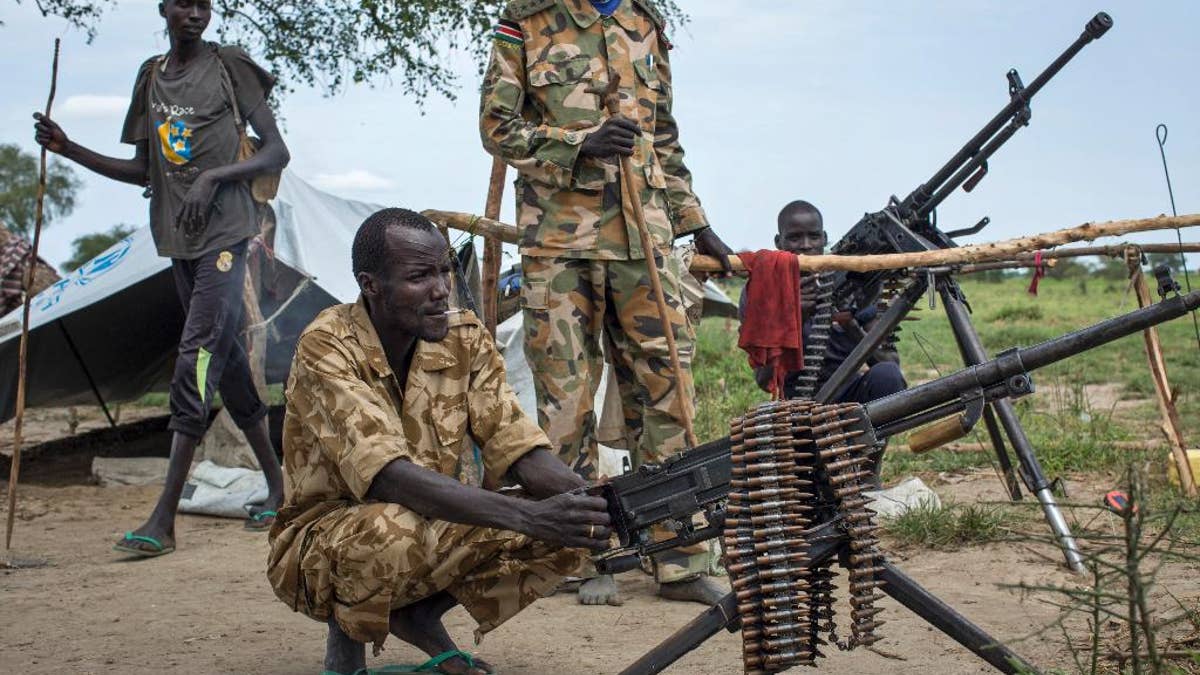
Rebel soldiers guard the village of Majieng, about 6km from the town of Bentiu, in South Sudan Saturday, Sept. 20, 2014. Seyoum Mesfin, the chairman of the South Sudan mediation process said Saturday there is renewed fighting in South Sudan between government and rebel troops and that it is a purposeful act aimed at derailing the next phase of the peace process. (AP Photo/Matthew Abbott) (Fighting continues to plague South Sudan)
For Jal, that something is his music. In addition to his activism, he has managed to make a living – and ignite a substantial following – as a hip-hop musician. With songs like “War Child” and “Ceasefire,” he shares vignettes of his life, and aims to motivate the youth in his homeland to seek peace, prosperity and unity.
“I just did an album with my sister, who is in a refugee camp, and music has also allowed her to manage her thoughts and anger. She was raped several times and has witnessed so many atrocities,” he said. “The area I come from in South Sudan, four in every five women have been raped, so many have become pregnant out of rape.
"And then kids, young men castrated – 60 people from just my family killed. How do I process that? I have to balance and say hey, I know these forces. I will be the bridge and the hope.”
Jal has also been an outspoken critic against those in the American hip-hop culture who exploit themes of drugs, sexual violence, greed and gangs.
VENEZUELAN OPPOSITION LEADER LAMENTS "GENOCIDE" IN HIS COUNTRY, REVEALS HIS ESCAPE FROM DETAINMENT
YEMEN'S CHILD SOLDIERS FACE LONG ROAD AFTER SEXUAL, PHYSICAL ABUSE
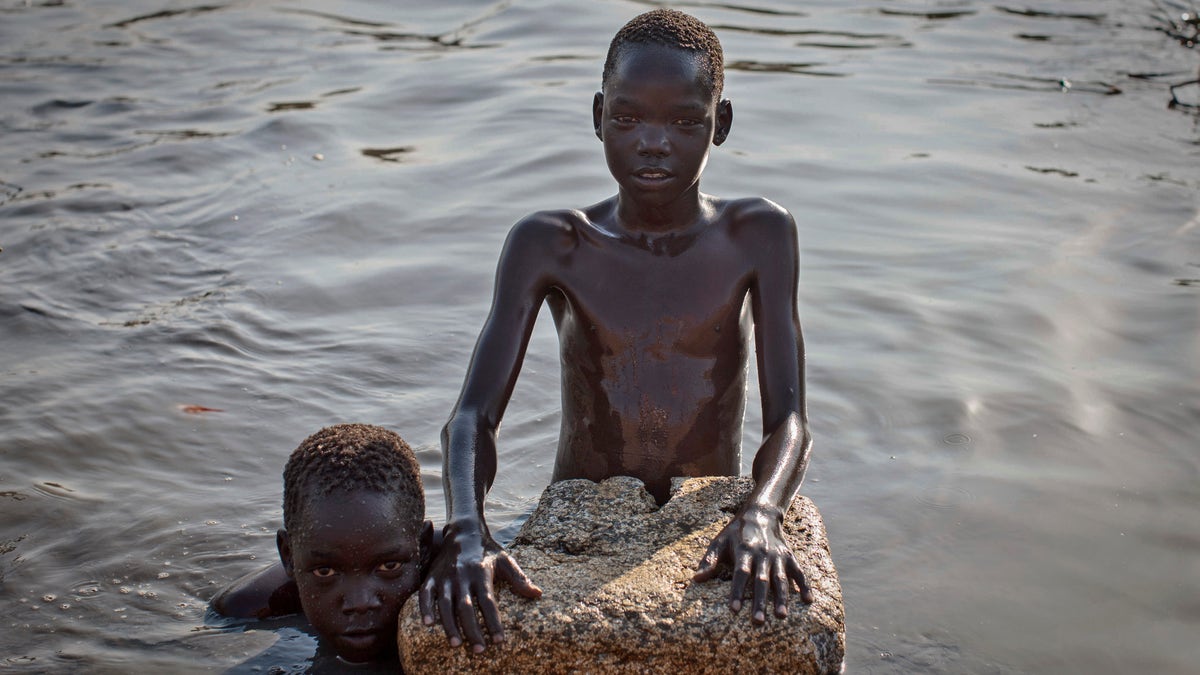
Young displaced boys bathe in a reservoir inside one of the camps for people who have fled the recent violence, in the capital Juba, South Sudan Saturday, Jan. 11, 2014. South Sudanese government troops on Friday retook Bentiu, the capital of oil-producing Unity state, from rebels loyal to the country's former vice president, a military spokesman said, while hundreds of thousands remain displaced in the nearly monthlong conflict. (AP Photo/Mackenzie Knowles-Coursin) (AP2014)
Yet despite a global awareness on what is still happening inside South Sudan – a country the United States spent billions on and led the push to formally declare as the world’s newest country in 2011 – there is no end in sight for the bloodshed.
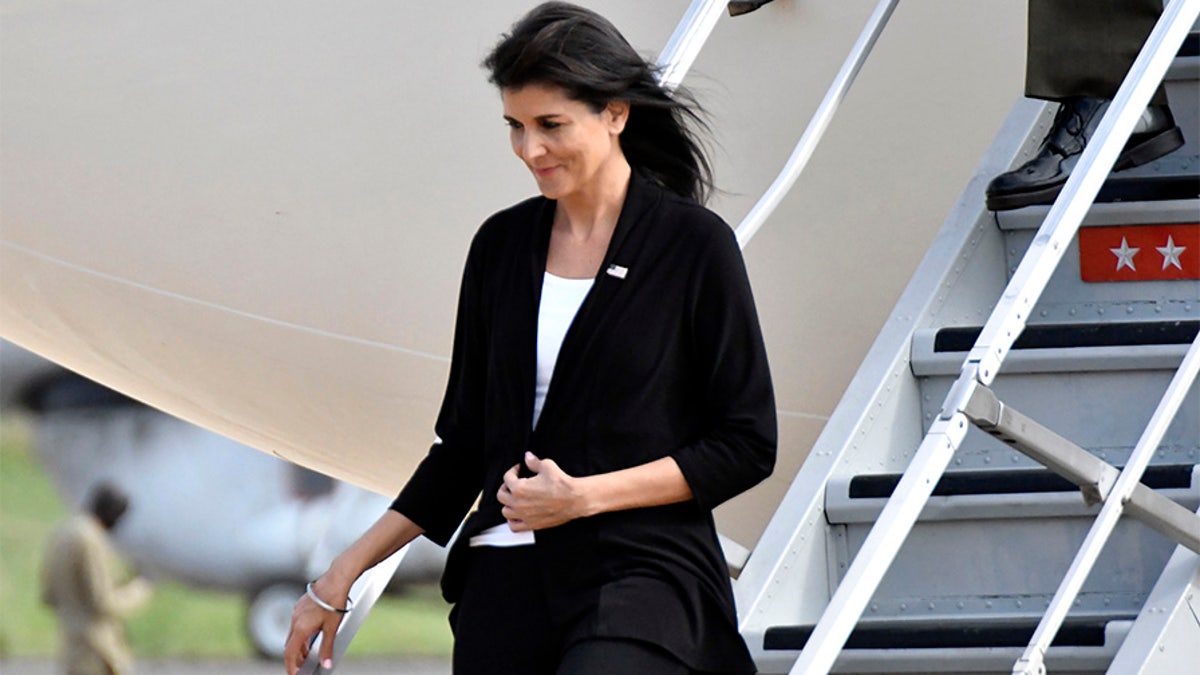
US Ambassador to the UN, Nikki Haley, arriving in South Sudan in 2017 (Copyright 2017 The Associated Press. All rights reserved.)
The ongoing civil war – which broke out in late 2013 as a power struggle between President Salva Kiir, who accused his former deputy, Riek Machar, of plotting a coup attempt – is heading toward its sixth year. And the recruitment of child soldiers is still rising, according to UNICEF.
Human Rights activists blame armed groups on both sides of the conflict for forcing children to bear arms, despite claims minors are no longer being recruited. More than 19,000 children are documented to have been conscripted into the battle in the last five years alone, according to UNICEF.
A report released by Amnesty International this month also cast an even murkier light on the depths of depravity in South Sudan. The investigation found civilians have been burned alive, hung in trees and swung into tree trunks until death, shot indiscriminately while hiding in swamps, and run over with armored vehicles by government forces in rebel-occupied areas.
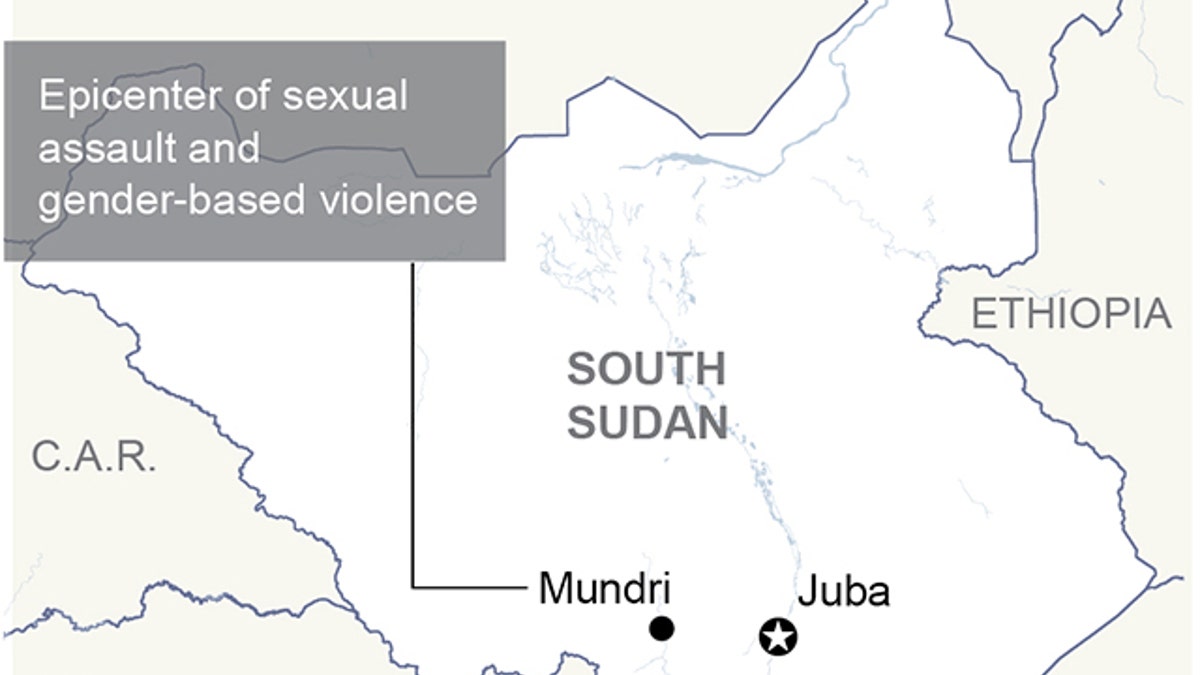
Map locates Mundri, South Sudan, the epicenter of a spike in sexual assaults in the country; 2c x 2 3/4 inches; 96.3 mm x 69 mm; (The Associated Press)
Civilian homes have reportedly been looted and burned to the ground, while women, girls and boys are held for several weeks and brutally gang-raped – sustaining serious injuries. UN figures estimate more than 50,000 have been killed since the 2013 conflict began, and that a quarter of the 13 million population has been displaced.
Jal also noted a tough stance by Nikki Haley, U.S. ambassador to the United Nations, who visited the country last year and called for an end to the regional violence - and the naming and shaming of perpetrators - he is optimistic for the future.
“America has played a huge role in South Sudan getting its independence. They trained the military and provided aid, but now the country is in a mess and the investment hasn’t worked out,” he added.
“But now I am seeing an urgency from the American leaders, there is speed and a real push to hold leaders accountable and establish a peace process. People like Nikki have gone and seen it themselves and been touched enough to respond. That is how change happens.”
